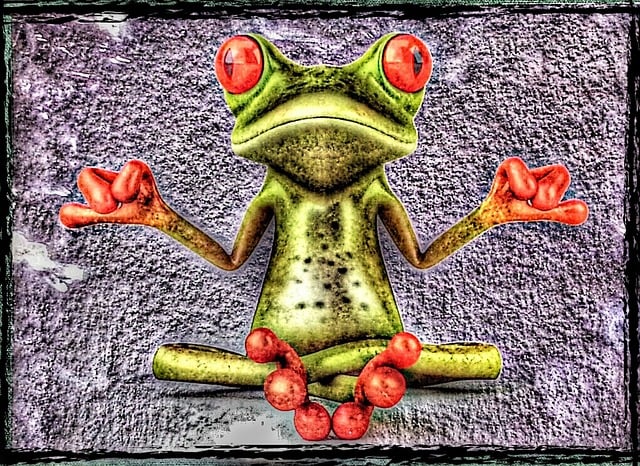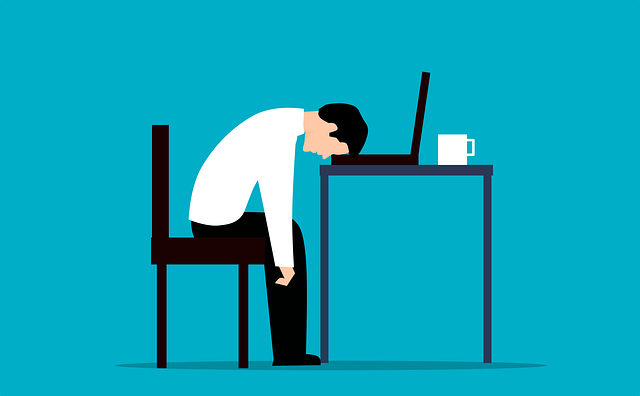Holistic stress management approaches view individuals as complete beings, addressing physical, mental, emotional, and spiritual aspects. Ancient practices like meditation and yoga, along with modern therapies such as massage, aromatherapy, and lifestyle changes (nutrition, exercise, sleep), offer comprehensive stress relief. Emotional well-being is crucial, supported by journaling, art therapy, self-care rituals, and natural remedies. Building a robust social support network and mindfulness practices are key components for managing stress effectively. Stress relief therapy combines these holistic methods to enhance quality of life and foster resilience against life challenges.
Stress management has evolved beyond traditional methods, embracing holistic approaches that cater to the interconnectedness of mind, body, and spirit. This comprehensive guide explores various effective strategies for achieving optimal stress relief. From ancient practices like meditation and yoga to modern therapeutic arts, we delve into a diverse range of techniques. Discover how lifestyle adjustments, emotional expression, natural remedies, social connections, and mindfulness can transform your stress management journey. Uncover the power of holistic stress relief therapy for a balanced, serene life.
Understanding Holistic Stress Management: A Comprehensive Approach

Holistic stress management approaches view an individual as a whole, encompassing not just their physical state but also mental, emotional, and even spiritual aspects. Unlike traditional methods that often focus solely on symptoms, holistic stress relief therapy aims to identify and address underlying causes of stress. This comprehensive approach recognizes that stress can manifest differently for each person, and what works for one might not work for another.
By integrating various techniques such as mindfulness, meditation, yoga, breathing exercises, and lifestyle modifications, holistic stress management offers a multi-faceted strategy for achieving true relaxation and well-being. These practices are designed to create a sense of balance and harmony within the individual, enabling them to effectively cope with life’s challenges and enhance their overall quality of life.
The Mind-Body Connection: Unlocking Stress Relief Through Meditation and Yoga

The mind-body connection is a powerful tool in the quest for holistic stress management. Meditation and yoga, as ancient practices, have gained modern recognition for their profound effects on mental and physical well-being. These activities foster a sense of calm by training the mind to focus and redirect thoughts, thereby reducing the body’s stress response.
Regular practice of meditation and yoga can lead to significant improvements in stress relief therapy. The mindfulness fostered through these practices helps individuals become more aware of their bodily sensations, allowing them to recognize and release tension. This holistic approach not only soothes the mind but also strengthens the body’s natural resilience against stressful situations, creating a balanced and serene state of being.
Therapeutic Practices: Exploring Massage Therapy and Aromatherapy for Stress Reduction

Massage therapy and aromatherapy are two holistic practices that have gained popularity as effective stress relief therapies. Massage involves the manipulation of muscles, tendons, and connective tissues using various techniques, such as kneading, stroking, or pressing. This hands-on approach helps to relieve muscle tension, improve circulation, and promote a sense of relaxation. Aromatherapy, on the other hand, utilizes essential oils derived from plants to enhance physical and emotional well-being. These oils are believed to have therapeutic properties that can reduce stress, lower blood pressure, and boost mood.
Combining these two practices offers a comprehensive stress relief therapy. Massage provides direct physical touch and manipulation, which can help release built-up tension in the body. Aromatherapy complements this by introducing calming scents that can relax the mind and soothe frayed nerves. Many people find that regular sessions of massage and aromatherapy help them manage stress more effectively, leading to improved overall health and a greater sense of tranquility.
Lifestyle Changes: Nutrition, Exercise, and Sleep as Cornerstone to Managing Stress

Lifestyle changes are a cornerstone in holistic stress management, offering powerful tools for achieving lasting stress relief. Nutrition plays a pivotal role; incorporating nutrient-rich foods and staying hydrated supports both physical and mental well-being. A balanced diet, rich in fruits, vegetables, whole grains, and lean proteins, provides essential vitamins and minerals that combat stress hormones and promote relaxation.
Exercise is another vital component. Regular physical activity stimulates the release of endorphins, nature’s own stress fighters, which can reduce anxiety and improve mood. Whether it’s a calming walk in nature, a invigorating yoga session, or an intense workout at the gym, choosing activities that suit individual preferences ensures consistent engagement. Adequate sleep is equally crucial; prioritizing quality rest allows the body to repair and rejuvenate, enhancing resilience against stressful situations. These lifestyle pillars, when incorporated into daily routines, form a robust foundation for effective stress management and complement other holistic stress relief therapy practices.
Emotional Wellbeing: Journaling, Art Therapy, and the Power of Self-Care Rituals

Emotional wellbeing is a cornerstone in holistic stress management, and various therapeutic approaches can significantly aid in cultivating it. Journaling has emerged as an effective tool to process emotions and experiences, providing individuals with a safe space to express their thoughts and feelings. Regular journaling practices have been linked to reduced stress levels and improved mental clarity. Art therapy offers another creative avenue for emotional exploration, where individuals use art to communicate and release deep-seated emotions, thereby fostering self-awareness and healing.
Self-care rituals are also essential components of holistic stress management. Engaging in activities that nurture the mind, body, and spirit can help regulate emotions and promote a sense of tranquility. This could include practices such as mindfulness meditation, regular exercise, spending time in nature, or practicing hobbies that bring joy. These self-care rituals not only provide immediate stress relief therapy but also build resilience over time, equipping individuals with valuable coping mechanisms to navigate life’s challenges.
Natural Remedies: Herbal Teas, Essential Oils, and Herbs for Calming Anxiety

Natural remedies have long been a go-to for many seeking stress relief therapy. Herbal teas, for example, offer a soothing experience that calms the mind and body. Chamomile, known for its anti-anxiety properties, is a popular choice often used to promote relaxation and improve sleep quality. Different herbs like lavender, lemon balm, and valerian root are also effective in reducing stress and anxiety levels.
Essential oils extracted from these herbs can be another powerful tool. Aromatherapy practices use scents like lavender and peppermint to create a peaceful atmosphere, aiding in mental clarity and emotional balance. These natural approaches provide an alternative way to manage stress, offering a holistic perspective that considers the mind-body connection for overall well-being.
Social Support: Building a Strong Network and Community for Stress Management

Building a strong social support network is an essential aspect of holistic stress management. Humans are inherently social beings, and connecting with others can significantly reduce stress levels. This involves cultivating meaningful relationships within your community, whether it’s joining local groups, participating in community events, or engaging in volunteer work. Having a supportive circle provides emotional backing, encourages open communication, and allows for the sharing of experiences, all of which are valuable tools in managing stress.
Incorporating social support into your stress relief therapy involves actively seeking out connections that uplift and inspire you. Friends, family, or support groups can offer practical advice, provide a listening ear, and help you feel less isolated during challenging times. The sense of belonging and camaraderie within these networks can foster resilience, making it easier to navigate life’s stressors and promote overall well-being.
Mindfulness Practices: Living in the Present Moment to Overcome Chronic Stress

In today’s fast-paced world, chronic stress has become an all too common struggle. One powerful tool in the fight against this modern-day plague is mindfulness practices, which encourage living fully within the present moment. By focusing on the here and now, individuals can break free from the cycle of worry and rumination that often exacerbates stress levels.
Mindfulness involves cultivating a non-judgmental awareness of one’s thoughts, feelings, and bodily sensations as they arise. This simple yet profound practice allows people to observe their stress responses without getting swept away by them. Over time, regular mindfulness exercises can help individuals develop a deeper sense of calm, fostering better coping mechanisms and an enhanced ability to navigate life’s challenges with resilience and grace. It’s a form of stress relief therapy that empowers folks to transform their relationship with stress, leading to improved overall well-being.
